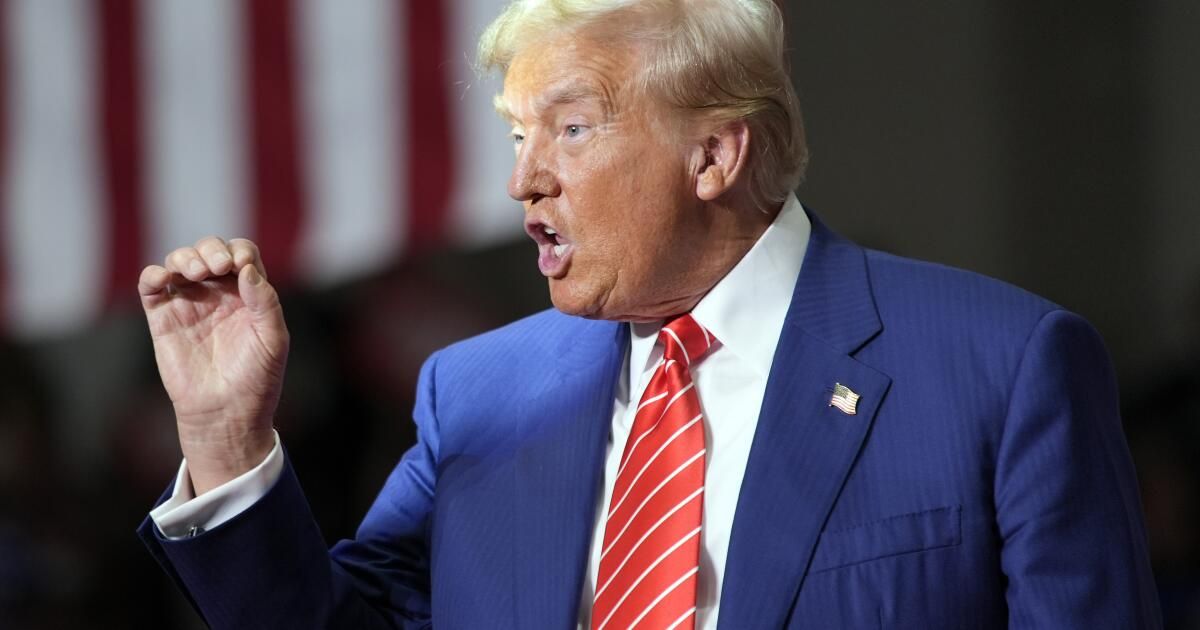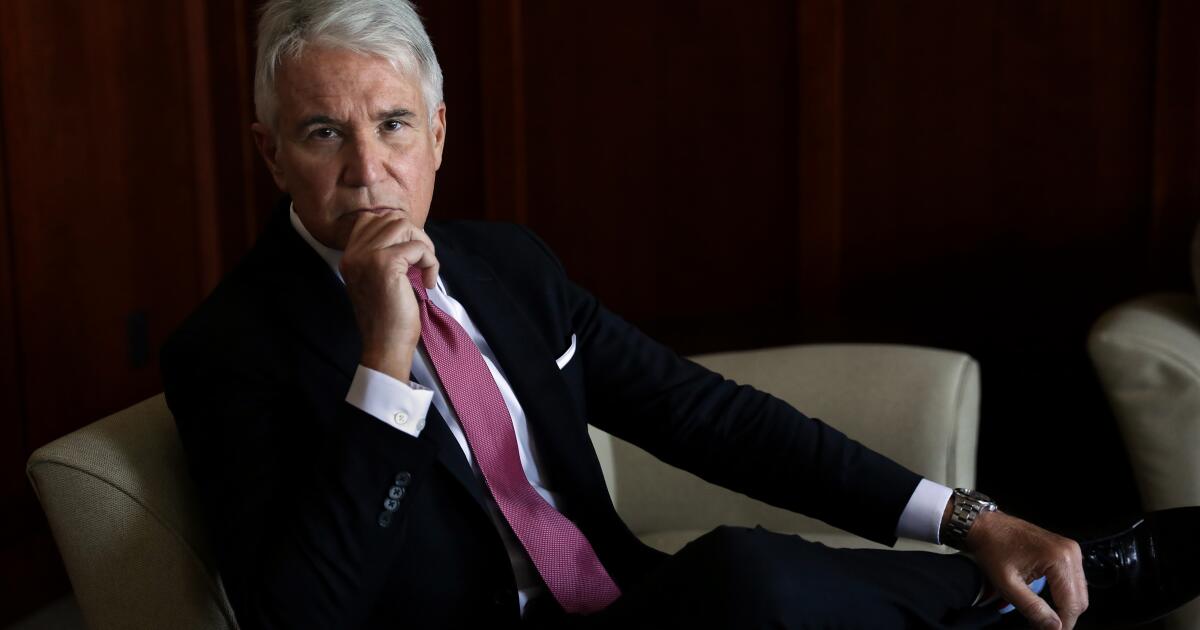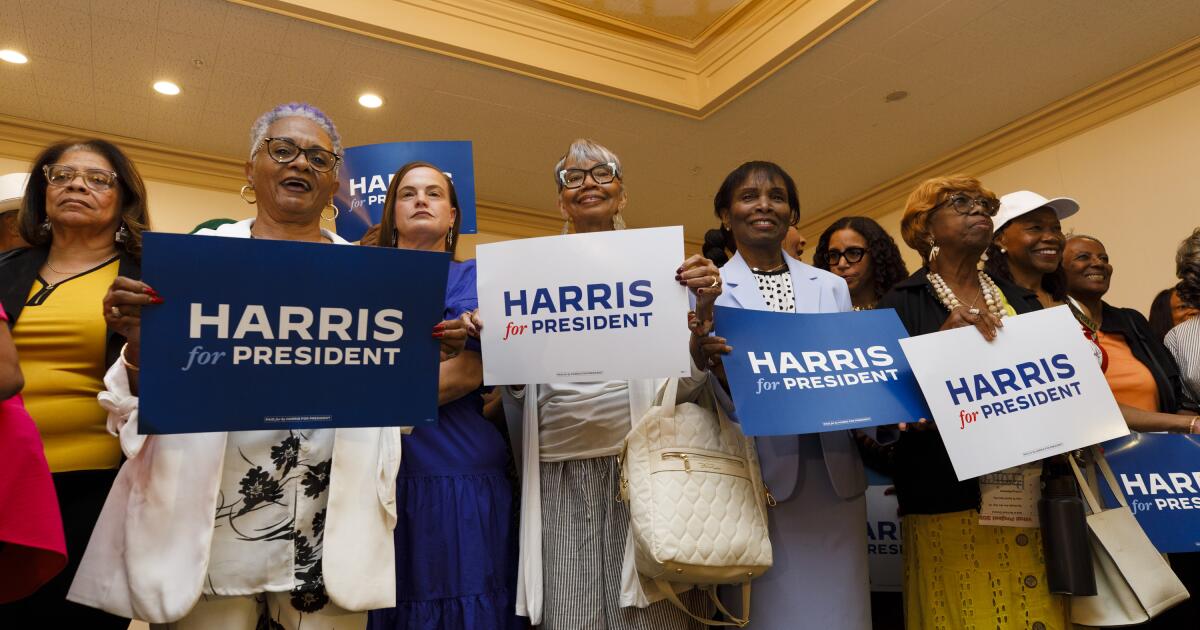Of all Donald Trump’s rhetorical predilections, one that goes almost unnoticed is his addiction to superlatives. No one has ever seen anything like virtually everything he mentions. Why does he do it? And what does it reveal?
Much of the misinformation in Trump’s relentless rant comes in the form of gross, almost comical exaggerations: He has the largest crowds anyone has ever seen (while his opponents’ are nonexistent, generated by artificial intelligence); Democrats are not only pro-choice, but have legalized the execution of babies in six states; and everything he said today.
A quick look in Trump's speech at the Republican National Convention In July, his reliance on superlatives is shown to have overtaken all his other oratorical habits. He used them to describe almost everything he discussed. The criminalization of political dissent is “at a level that no one has ever seen before.” The “inflation crisis” is “crushing our people like never before. They’ve never seen anything like it.” As for the “illegal immigration crisis,” well, “no one has ever seen anything like it.”
Speaking about his own presidency, Trump said, “We had an economy like no one, no nation, had ever seen.” Also under Trump, “we had the most secure border and the best economy in the history of our country, in the history of the world.” That brings us to the middle of the speech.
Last week, during the presidential debate, Trump continued to use superlatives. Between telling us that pets were on the menu in Springfield, Ohio, and that Kamala Harris wants to perform transgender surgeries on illegal immigrants in prison, he told us that he has “the biggest, most incredible rallies in the history of politics” and that “crime committed by immigrants” is “happening at levels that nobody thought possible.”
This kind of rhetoric is not new. Vesna Mikolič, a scholar of Slovenian linguistics, analyzed the speeches of four of the original Italian fascists of the 1920s. She found that a greater intensity of their language, including hyperbole and superlatives, correlated with their detachment from reality, as well as incitements to violence and actual violence. Mikolič calls this kind of oratory — such as Trump promising to “take America to new heights of greatness like the world has never seen before” — “the rhetoric of revolution.”fascist imaginary.”
Once a leader commits to hyperbole, he stays committed. As Richard Evans reminds us in his book Hitler’s People: The Faces of the Third Reich, Adolf Hitler claimed that his invasion of France was the “most glorious victory of all time” and that he was the greatest military leader of all time, greater than Napoleon or Caesar.
Federico Finchelstein, an expert on Argentine fascism, says that these leaders “fantasize about creating new realities and ultimately transform reality to fit their fantasies.” For example, Hitler claimed that Jews were subhumans plagued by disease and then created the conditions that made him prophetic. The goal of fascism, says Finchelstein, is “the destruction of any trace of demonstrable truth.” And the philosopher Hannah Arendt says “The ideal subject of the totalitarian regime is… people for whom there is no longer any distinction between fact and fiction or between truth and falsehood.”
Finchelstein also points out that fascism cannot rise without existential enemies. Every struggle is urgent and every enemy is mortal. It is as if all the struggles between good and evil in our ubiquitous superhero movies feed Trump’s illusion that he does not live by the rules that govern mere mortals. NFT Trading Card Collection$99 each, depicts him as a superhero, with the American flag as a cape.)
“We didn’t have wars,” the former president said in his convention speech. “I could stop wars with just a phone call.” By this logic, if Trump is re-elected, all wars will cease because of his irresistible charm, with which he has befriended the “genius” Vladimir Putin, the “fantastic”Hungary’s Victor Orbán and Saudi Arabia’s Crown Prince Mohammed bin Salman, who is “Doing a spectacular job.”
These foreign despots are his comrades, while Trump’s existential enemies come from within. Joe Biden is a destroyer of democracy; Harris is a communist, a Marxist, and a lunatic of the radical left. And both, of course, are liars.
According to Finchelstein, projection is another central characteristic of the would-be dictator. “Fascists always deny who they are and attribute their own characteristics… to their enemies.” Trump’s projection makes enemies of his own countrymen, whom he blames for his growing legal peril. As the forces of justice align against him, the superlatives mount. He has framed this election as a battle between good and evil because for him, it is in fact a desperate, raw struggle to avoid accountability.
In their podcast Shrinking Trump, psychologists John Gartner and Harry Segal identify the increasing simplicity of Trump’s vocabulary and worldview as a sign of cognitive decline – which it may well be, but it is also a hallmark of fascism. Trump has always lied, but his fantasies have now reached a level never seen before.
Laurie Winer is the founding editor of the Los Angeles Review of Books. She is the author of “Oscar Hammerstein II and the Invention of the Musical.”












